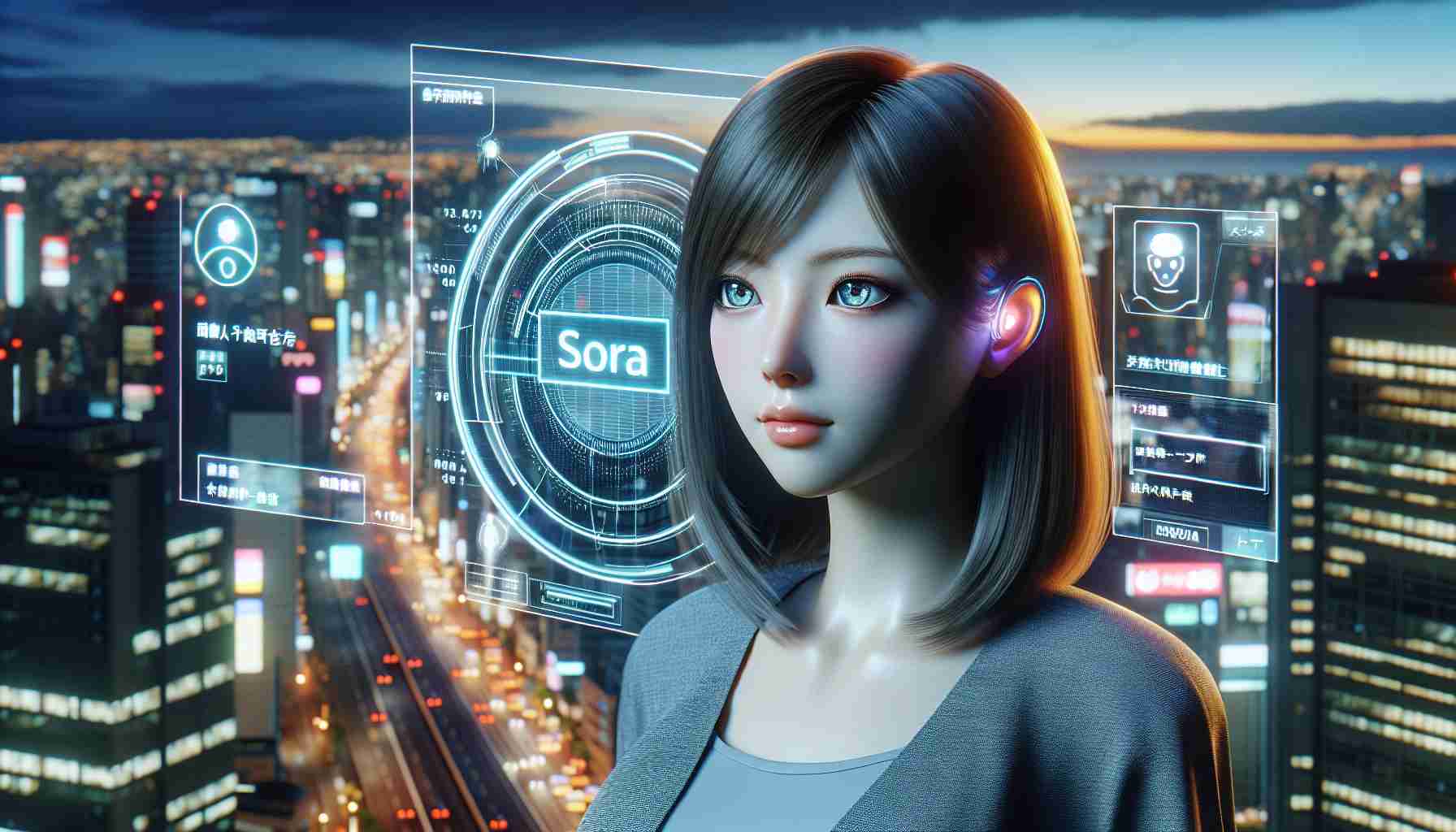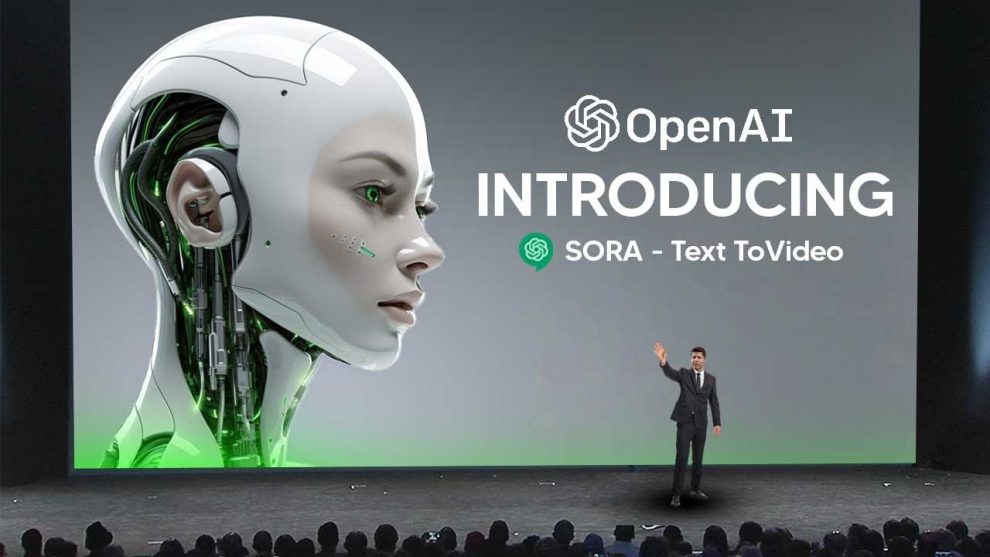OpenAI, the leading AI research organization behind innovations like GPT-3 and DALL-E, has unveiled its newest creation – Sora. Sora represents a massive leap forward in generative AI, with the ability to create strikingly realistic and coherent videos directly from text descriptions.
In this comprehensive guide, we’ll explore everything you need to know about Sora – how it works, its capabilities, its vast potential, and considerations moving forward:
How Sora Works – Bringing Text to Life
At its core, Sora is a deep neural network trained on massive datasets of text captions and their corresponding videos. By exposing Sora to millions of text-video pairs, it learns to develop a complex understanding of the connection between textual descriptions of scenes and the actual visual components and dynamics that make up those scenes.
When presented with a new text prompt, here is the process Sora utilizes to translate that text into photorealistic video:
Text Preprocessing
First, Sora analyzes and prepares the input text to ensure consistency. This involves tasks like spelling correction, text normalization, and segmentation into semantic units.
Scene Understanding
Next, Sora’s natural language processing algorithms extract key elements from the text, identifying critical objects, actions, backgrounds, and relationships. This contextual understanding informs the video generation process.
Video Generation
Sora’s generative neural network takes over, generating a sequence of video frames that match the descriptions and intent. This involves generating background images and distinct objects, then dynamically arranging them in coherent scenes with realistic motion.
Refinement
Finally, the AI reviews and refines the initial video draft, enhancing realism through techniques like error correction, visual continuity, and tone adjustment. The end result – a stunning video that feels like live footage rather than an artificial creation.

Sora’s Capabilities – Limitless Possibilities
Sora represents an enormous leap forward in AI’s creative capabilities. While the underlying technology is highly complex, interacting with Sora is meant to be simple and intuitive.
To generate a new video, a user just needs to provide a text description of the desired scene. For example: “Two kids playing with a red ball in a sunny park with lots of trees in the background.”
In seconds, Sora processes the text and generates a high-quality video matching the description – complete with two young children happily playing with a ball against a lush, green park backdrop. The potential applications are nearly endless.
Revolutionizing Animation and Visual Effects
One of Sora’s most exciting use cases is significantly enhancing animated film/TV production. Rather than painstakingly creating every single scene manually, creators could simply describe the desired sequence of events in text for Sora to automatically generate.
This would massively accelerate production timelines while still allowing directors to retain creative control through textual scene specifications. It could also prove invaluable for creating realistic backgrounds, effects sequences, and crowd scenes to complement principal character animation.
Highly-Engaging Education and Training
Interactive education is more critical than ever for 21st century learners. Sora could be leveraged to convert textual lectures, lessons, and processes into dynamic video tutorials. Making concepts like photosynthesis, moon phases, or baking a cake spring to life through AI-generated visuals and motion would provide unprecedented clarity and engagement.
Such generative educational videos would also help address accessibility challenges. Text-to-video could provide low-vision students an easier pathway for consuming lectures and classroom materials through verbal narration paired with visuals.
Turbocharging Marketing Creative
Visual content reigns supreme in digital marketing. Sora enables rapid ideation and iteration of dynamic video ads. Marketers could instantly test out countless messaging variations tailored to unique demographics and campaign goals simply by tweaking the descriptive text and having Sora generate endless new cuts.
This would supercharge advertisers’ abilities to produce high-volumes of quality video ads while optimizing based on real-time performance data.
Myriad Other Possibilities
The potential of Sora expands far beyond just these three industries. Other promising applications include:
- Video translations – Subtitling videos in different languages
- Accessibility tools – Audio descriptions for blind users
- Journalism – Bringing textual stories to life
- Smart security – Text-based video surveillance querying
- Creative expression – Casual video generation for social sharing
As Sora continues evolving, even more revolutionary use cases are likely to emerge. The possibilities are truly endless for this remarkable technology.
/cloudfront-eu-central-1.images.arcpublishing.com/prisa/NTVF3BCL25BMPKHEYBHH3G2GBM.PNG)
Realistic Videos, Realistic Concerns
While Sora represents an incredible advance for AI creativity, we must also carefully consider the potential downsides of such powerful generative video capabilities.
Deepfake Dangers
Synthetic videos depicting events that never actually occurred, known as deepfakes, represent an alarming societal threat. As Sora demonstrates, realistic AI-generated video is now firmly within reach.
If released irresponsibly without safeguards, malicious actors could exploit Sora to spread fake news or defamatory videos causing immense harm. More advanced techniques are urgently needed to detect AI-fabricated footage as this threat landscape expands.
Bias Risks
ML systems like Sora learn patterns from their training data. Any distortions or societal biases encoded into those videos stand to propagate through Sora’s generative process. Just as biased textual datasets have resulted in toxic chatbots, skewed training data could severely impact Sora’s video output.
Ongoing bias detection analysis and mitigation procedures are critical to prevent Sora from generating problematic or unethical content reflecting historical prejudice in the video domain.
The Need for Oversight
Broader policy questions also arise from technologies like Sora that blur the lines of media authenticity. How can abuse be prevented without limiting constructive applications?
Government advisory boards are now forming to develop regulatory guidance. However, lacking technical fluency, policymakers must closely collaborate with AI experts to enact pragmatic oversight safeguarding society without severely hampering innovation.
The Future with Sora
Sora marks a thrilling new frontier for AI creativity. With diligent steering, its societal benefits can significantly outweigh the risks. Constructive applications of this new capability appear invaluable across industries like media production, marketing, game development, and education.
However, reckless open release without safeguards would inflict catastrophic damage through unchecked deepfakes and algorithmic bias. Developing mechanisms to prevent such outcomes is essential as advanced generative video progresses from abstract possibility to tangible reality with innovations like Sora.
By upholding ethical priorities while unleashing Sora’s creative firepower, we chart the course to an exciting new era of AI enhancement markedly improving how we work, learn, and are entertained through smarter, personalized, and more accessible visual content.
















Add Comment